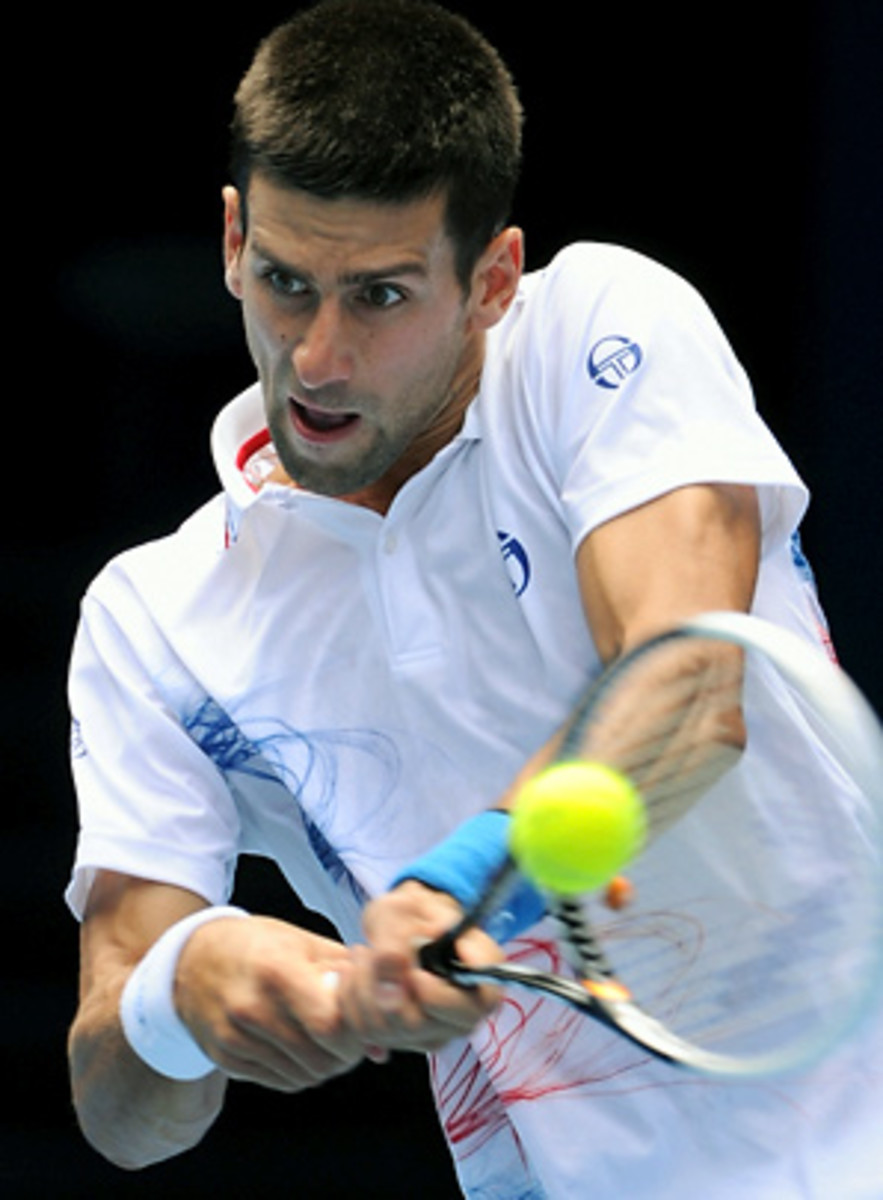Australian Open midterm grades
Top seeds: With a few minor exceptions, the top guns are locked and loaded. Defending champion Novak Djokovic has dropped 10 games in his first three matches. And that's twice as many as Maria Sharapova. Neither Roger Federer nor Rafael Nadal has lost a set, and the same can be said for Serena Williams, Caroline Wozniacki and Victoria Azarenka, among others. Bring it on, Week 2.
Kei Nishikori: The 22-year-old is the first Japanese player to reach the fourth round of the Australian Open, matching his career-best result at a Grand Slam tournament.
Australian men: Whereas Sam Stosur couldn't withstand the pressure of being a star attraction, teenager Bernard Tomic fed off the partisan support. Before falling to Federer in straight sets, the 19-year-old rallied to oust Fernando Verdasco, Sam Querrey and Alexandr Dolgopolov. Meanwhile, 30-year-old Lleyton Hewitt joined Tomic in the fourth round, giving Australia two men in the last 16 for the first time since 2004.
Zheng Jie: After winning the Auckland tune-up, the unseeded 28-year-old has continued to roll with three consecutive straight-set victories. This is her deepest run at a major since making the 2010 semifinals in Melbourne.
Lucky Eleven: Juan Martin del Potro and Kim Clijsters -- both seeded No. 11 -- are into the second week. Del Potro, his comeback from wrist surgery gathering momentum, will face Federer in the quarterfinals. Clijsters will meet Wozniacki in the quarterfinals after overcoming an ankle injury to defeat Li Na in a rematch of last year's final.
American prospects: None are left at the dance, but some glimmers of hope courtesy of Ryan Harrison (who took a set against Andy Murray in the first round), Sloane Stephens (who won her first-round match and had a near-miss against Svetlana Kuznetsova) and Christina McHale (who made the third round for the second straight major).
Laura Robson: The British teen wore a rainbow hairband onto Margaret Court Arena, one of the few players to issue a protest over Court's comments against gay marriage. (Robson then lost 6-2, 6-0 to Jelena Jankovic.)
Tomas Berdych: He advanced to the quarterfinals with a courageous four-set win over Nicolas Almagro -- which was completely overshadowed by his refusal to shake his opponent's hand.
Casey Dellacqua: The endearing Aussie -- sidelined for so long by injury -- scored an impressive first-round win, beating Bojana Jovanovski. Then she mustered just one game against Azarenka in the second round.
ESPN: Unobjectionable coverage as usual. The mothership in Bristol, though, could help with the promotion, starting with more mentions on SportsCenter or PTI. And we're getting complaints that the coverage is heavily skewed toward the men.
Tecnifibre: Baghdatis' display was not a ringing endorsement for customer satisfaction. But a viral video is a viral video.
Verizon: The company rolled out Tennis Channel in time for the Australian Open and announced a new multiyear carriage agreement.
Mardy Fish: The top American, seeded eighth, once again went ker-plooey in a major. A second-rounder against Alejandro Falla? That's just a match you have to figure out a way to win.
Sam Stosur: Palpably nervous, the winner of the last major -- and local favorite -- went down in the first round. This had echoes of Amelie Mauresmo in France. It's no coincidence that Stosur's major breakthrough (winning the 2011 U.S. Open) came thousands of miles and 16 times zones from home.
Injury mania: If the tours are ever short of cash, they might consider a co-pay for every trainer call. Here it is the third week of January and an unending stream of players are banged up (in the case of Andy Roddick, so much so that he retired from his second-round match against Lleyton Hewitt). Whatever the cause -- too many hard-court matches, runaway technology, heavy balls -- it's negligent that the tours aren't taking this more seriously.
Activist judges: Either enforce rules absolutely, including the time violations, or show more discretion. The officiating at the end of the David Nalbandian-John Isner match was the most egregious. And the chair umpire messed up the score during Vania King's loss to Ana Ivanovic -- remarkable given that it was a prime match on a show court.





